- Home
- Fay Weldon
Before the War Page 11
Before the War Read online
Page 11
A Morning, Later In May 1923. Dilberne Court.
It was a fairly terrible wedding. It rained all day as it hadn’t all month. Arum lilies glowed in the dim church, and made most of the guests think of the last funeral they had attended. Some fifty had been invited, for all the happy couple’s efforts to keep the event as small as possible. Twenty came for Vivvie’s side – mostly publishing friends of her parents, and of course Syrie Maugham and her husband Somerset, whom Sherwyn was happy to meet – and Sherwyn’s father Edgar and stepmother, who had forgiven him now he had paid back all the monies owed, and actually had a novel finished and at the printer’s. A handful of parishioners clustered round the church door. It was a Dilberne wedding, after all. Vivvie might not be of the direct line but she was still a Dilberne, and Jeremy and Adela, now being a Sir and a Lady, not a mere Mr and Mrs, deserved respect and support, though Vivvie was obviously no beauty. There would have been more but it was raining hard.
Vivvie, at five foot eleven inches, came down the aisle on her father’s arm – he looked proud and pleased enough, well dressed and well fed at five foot ten – to the tune of here comes the bride, to the Lohengrin theme played by the local organist. Sherwyn, at five foot six and a half, followed with best man Mungo, five foot nine, and even he was dwarfed by Vivvie. Someone in the congregation giggled into the silence as the ring failed to go on Vivvie’s finger. (Mungo’s idea of a practical joke, it later emerged, to switch rings with one from Adela’s dressing table.) Father Harris carried on with the service but Vivvie burst into tears and scarcely managed the ‘I do’. But it was not a ceremony that many cared to remember.
Vivvie didn’t look too dreadful at all, swathed and hung about with satin. She might have looked pregnant but equally could not have been. A girl from Helena Rubinstein’s London salon had come down and plucked her bushy eyebrows and arranged her hair in a flattering sweep across the brow which at least made her eyes look large and lovely. Vivvie, seeing such ministrations were inevitable and subdued by Adela’s steely will and rigid jaw, had taken a dose of the tonic she gave Greystokes whenever he became restive, and sat calmly enough through the process. (She had taken quite a swig before the ceremony, as it happened, which may have been the reason both for her large-pupilled dark and lovely eyes and her bursting into tears. She was not normally so emotional.)
Neither Sir Jeremy nor Sherwyn had been informed of the pregnancy. Vivvie, according to Adela, must be seen as a virgin bride, as in proper circles in 1923 brides were. The thing to do was to get the girl married before anyone could change their mind. The baby was the legal child of whoever married the mother before the birth. The slur of illegitimacy was thus avoided.
The Wedding Reception
Silver braziers warmed the marquee. The rain began to abate. Scrambled eggs and oysters Rockefeller were served.
Sherwyn buzzed about the guests, Sir Jeremy was lordly, Adela was supremely gracious. Vivvie sat heavily in a corner and smiled: Greystokes’ tonic, she noted, might sooth horses, but it sent humans charging about from one emotion to another, sometimes weepy, sometimes panicky, sometimes hopelessly placid. If you were in a placid stage that was that. As bearer of a baby by the Angel Gabriel, or whoever had sent him, it behoved one to smile and be placid and endure. She wondered if she had been soothing herself too much with Greystokes’ tonic when the Angel Gabriel had appeared. Perhaps she should take a little less? Well, when she was on honeymoon she would have to do without.
Sir Jeremy rashly used the opportunity to button-hole Somerset and ask if he could see his way to signing up with Discerning Yarns. ‘Me? A teller of yarns? I am well aware I am no lyrical writer, dear boy, but yarns? I think not. I am happy enough with Heinemann, no matter how much you and your lovely wife spend on dear Syrie.’ And he wandered off to stand next to a brazier and shiver melodramatically.
Somerset had a reputation as being a poisonous bugger on occasion and Sir Jeremy felt able to overlook it. Writers could be tricky: he was fortunate that Sherwyn Sexton was both cordial and cooperative. He hoped that the involuntary giggle that had escaped from his own lips during the service had not been noticed. There was nothing to laugh about, after all. It was a sacred ceremony and if the groom was small and the bride was large instead of the other way round, what did God care? Would there be a place for a list to balance Discerning Yarns? Perhaps Involuntary Laughter? He must find Mungo and have a word with him.
Mungo was in conversation with Sherwyn. Both were standing shivering next to a brazier. Many of the guests had taken shelter in the morning room, unasked, and were no doubt grinding canapés underfoot into the zebra rug. No-one liked the oysters Rockefeller, fashionable bright green though they were. The old guard dismissed them as on a par with arum lilies at a wedding – nouveau riche, trade. The new guard saw it as a fashion too far, style before content and what did one do with the little sticks once the oysters were chewed – and chewed they had to be, at the very end of the season and so very large, and overcooked anyway.
‘So what about the honeymoon, old chap?’ Mungo was asking Sherwyn. ‘Sorrento? Capri?’ Mungo had apologised to Sherwyn about ‘the ring business’. It had been a mistake: he’d had two rings in his pocket. He’d taken out Adela’s by mistake, and fishing for Vivvie’s had found it gone, fallen through a hole in his pocket. He did not go into detail as to why on earth he had Adela’s ring in his pocket, nor did Sherwyn pursue the point. He was beginning to think that his mother-in-law’s virtue was not her strong point.
‘Barscherau,’ said Sherwyn. ‘A ski resort or something. Bavaria.’
‘Oh dear,’ said Mungo. ‘Never heard of it.’
‘That’s the idea. I have a novel to write,’ said Sherwyn. ‘What I need after all this is peace and quiet.’
‘Then you’ll certainly get it,’ said Mungo. ‘The Alps, in May? Very strange. But I daresay there’ll be a few mountain girls in plaits and dirndl skirts to keep you occupied.’
‘Vivien has family connections in that part of the world,’ said Sherwyn, stiffly. Sometimes Mungo went too far.
‘And a long honeymoon, I daresay, since the birth can’t be until at least seven months after the wedding and produce a very tiny baby at that. That takes us through until January before you can decently reappear. Can you stand it, old friend? Is even a fortune worth it? Have you tried the scrambled egg? Ugh! Little yellow balls of snot floating in salt water.’
Sherwyn, for all he practised aplomb, had actually dropped his glass of champagne. Staff rushed to clear it up.
‘That’s impossible,’ said Sherwyn. ‘Vivvie? Pregnant? You must be joking, Mungo. What’s more, a joke in very bad taste. Are you drunk? I’ve never touched her. Would I, unless I had to? It would be like climbing a mountain. The very prospect terrifies me.’
‘I thought she looked rather fetching today,’ said Mungo, ‘positively glowing with life and happiness. So you deny being the mountain goat. But who’s going to believe you?’
‘This is a very untoward calumny,’ said Sherwyn. ‘Pregnant? Vivvie’s a virgin, what else can she be?’
‘Not any more, my friend,’ said Mungo. ‘I looked down and saw that big, welcoming belly move of its own volition. That’s why I fumbled with the rings. There’s a bun in the oven all right, you sneaky bastard. Didn’t she tell you?’
As the two men stood facing each other, Mungo in affected sorrow, Sherwyn in shock and disbelief, Sir Jeremy came up to them.
‘What do you think, Mungo?’ asked Sir Jeremy. ‘Would we do well with a humour list? The proletarian masses need entertainment. We can’t take ourselves too seriously. We’ve got the mystery list up and running. What do you think of Involuntary Laughter?’
‘The times are ripe for a bit of mirth, sir,’ said Mungo, smooth as ever. ‘Why not?’
‘What do you think, old chap?’ Sir Jeremy asked his new son-in-law.
Sherwyn could think of a dozen reasons why not but he did not bother to utter them. He was rapidly workin
g out the pros and cons of the new situation. Vivvie pregnant, but not by him. He could almost feel gears changing, interlocking, slipping into a different mode. It was almost exhilarating. He enjoyed the shock of the new: it was what he was good at. Vivien Sexton, his new wife, had deceived him, tricked him into marriage. He had every right to be indignant. But how he loved event: it was what made him a writer of fiction. He did what he could to bring about the unusual and exceptional in his own life: if that failed he took to the page and created more. Now fate had handed him a single shocking event on a plate, which would give rise to a hundred others, if he played his cards adroitly.
The sheep’s eye story had been accepted by Blackwood’s – Sir Jeremy knew the editor: not that that had anything to do with it – perhaps there could be a sequel in which the girl, made pregnant in Morocco, was desperately looking for a husband. Sherwyn would spend the honeymoon working such a story out. Vivvie had cruelly tricked him, of course she had. He was now, perforce, the legal father of her misbegotten child. He had every reason to be outraged. But so far as Vivvie was concerned Sherwyn occupied the moral high ground and she would be in no position to step out of line. The Ripple parents, like Mungo, would assume it could only be Sherwyn’s child. Vivvie would not be believed if he denied paternity. He would not attempt to do so; being father to a Ripple grandson would have its advantages.
It might well be, of course, that Vivvie was more like her mother than anyone would believe; some kind of monstrous nymphomaniac rather than a heavenly one. How otherwise had Mungo gained access to Adela’s ring, come to think of it? Sherwyn had assumed he was the only one to be at the receiving end of Adela’s flirtatious overtures. But perhaps he was wrong? When he was back in London he would enquire further. At least there was a clause in the prenuptial so he’d go on getting the £20,000 if the marriage broke down as a result of infidelity on the part of husband or wife. It had been put there by Vivvie’s lawyers to protect her interests – though she had promised him she would never invoke it. She had insisted, and indeed hoped, that Sherwyn would pursue his erotic impulses outside the marriage. He could see the clause might work in his interests as well – though the complications and scandal of a divorce from a nymphomaniac wife were best avoided.
As for Adela, she was the girl’s mother. She must have realised before now that her daughter was pregnant – and had not seen fit to mention it before the wedding to give him a chance to pull out. Well, of course not. Just get the wedding over, and the family would not be tainted by the slur of illegitimacy. But it was still bad form. One could never be sure with the Ripples, he began to realise, quite who was conning whom.
It was perfectly possible that Sir Jeremy – what was all this nonsense about a humorous list? Discernment was one thing, but a serious house had no business dealing in humour – had not had his attention drawn to Vivvie’s changing shape. At the best of times the poor girl huddled beneath dismal, shrouding clothes: how on earth had she managed to get herself impregnated? And at the best of times Sir Jeremy saw only what he wanted to see: he would not have been involved in the deceit.
Most importantly, Sherwyn had signed a mere one-book contract with Sir Jeremy, which had annoyed him at the time but he could now see it was perhaps as well. And that as a publisher Sir Jeremy was a rather annoyingly impulsive cove. But Sir Jeremy was staring at him, waiting for a reply.
‘Involuntary Laughter,’ agreed Sherwyn. ‘Brilliant idea. Why not?’
In The Evening Of That Day
The bride and groom departed for the Alps, the Great Unknown. The wedding party under the marquee went on. The dessert course had been cleared away. Hot asparagus soup and rolls were being offered. Adela went down to the kitchen where Elsie Fletcher, the seamstress from the village – she had been roped in to help with the catering for the day – was washing out the great silver and glass bowls which had held the trifles, and plunging champagne glasses into soapy water (it was the days before detergent so they had to be rinsed in vinegar water to remove soapy residue and polished with a soft cloth – nothing was easy – before being returned to Harrods).
‘I think all that went very well, don’t you, Elsie?’ said Adela.
‘Yes, Ma’am, and didn’t the bride look a picture.’
‘Let us say she looked as good as she could. But the dress was magnificent. Thank you for your skills and ingenuity, Elsie. Not the slimmest of brides, of course. Overeating in anticipation of the great day, I fear.’
‘I’m sure that’s what it was, Ma’am. I’ll say nothing to anyone, don’t worry yourself. I’m fond of Miss Vivvie, and we’re all glad down in the village she found someone to marry.’
‘Quite so,’ said Adela.
She took one of the six trifle bowls and studied it. It was made of cut glass, caught the light deliciously, and sparkling in the evening light and rimmed with real silver as it was, looked, and was, a really desirable object. Expensive too, and from Harrods.
‘But oh dear, this one has a crack in it,’ Adela said. Elsie was taken aback.
‘It looks all right to me, Ma’am. It’s not damaged. I’ve been very careful.’
‘Oh no, see, it’s quite cracked. It can’t go back to Harrods like that. I’ll have to declare it as wastage. Such a pity! Still, these things happen. Perhaps you’d like to take it home, Elsie? You could keep flowers in it.’
‘Oh I couldn’t, Ma’am, it’s far too grand for me.’
‘Nonsense, Elsie. It’s in gratitude for all your fine work and loyalty.’
‘Thank you, Ma’am. That’s very kind of you. Not a word to anyone as long as I live.’
And Elsie put the bowl carefully to one side to take home with her after work, and Adela smiled and went back to what was left of the party. One by one guests were drifting away, by Bentley and Rolls-Royce, over smooth roads recently tarmacked to join up with the main road to London (Vivvie paid, helped by grants from Brighton County Council and the new Road Fund), humbler folk by charabanc to Dilberne Halt. Everything organised by Adela went swimmingly. But then she had, as they say, the luck of the Devil.
Adela then waylaid her husband Sir Jeremy, who was only a little drunk. She was wearing a pink and white beaded silk tulle dress as simple as Vivvie’s had been elaborate, but then she had so little to hide. She came up to his shoulder; she looked up at him, so appealing, so small, so pale. The only flash of colour was from the Queen Alexandra ruby ring he had first put on her finger twenty years ago at Monte Verità. Sir Jeremy was touched. And still they loved each other – now more than ever.
‘Such a day, darling,’ she said, ‘such a day! Our daughter married at last, and to a truly worthy mate.’
‘I sincerely hope so,’ said Sir Jeremy. ‘He’s a devious bastard, if a good enough writer.’
Adela then broke the good news to him; she was expecting; they were going to have a baby. She hoped he was as happy as she was.
Sir Jeremy peered at her through mists of alcohol. She had always told him that after Vivvie she was unable to conceive. Something had gone wrong in the unknown complexity that formed the female body. Women were strange creatures. One thing one day, another thing another. But surely bright young things had babies, not mature women such as his wife.
‘I am happy if you are,’ he said. ‘But is it safe at your age?’
‘Good Lord, darling, I am not as old as all that. It is perfectly safe.’
He had no idea how old she was, come to think of it. He could hardly ask her outright – that was unthinkable, and besides women were expected to lie about their ages. He could work it out, he supposed, but that too seemed an insult. It had been a long day and he was tired, unlike Adela, who was indefatigable. Now she was laughing merrily.
‘An unexpected blessing, it is true. But Mother Nature often hands we women a last departing gift. It happens to the best of couples.’
‘It might be a son, I suppose,’ he said, doubtfully.
‘Someone to take over from you. Ripple & Co coul
d become Ripple & Son.’
‘I am not a draper or a funeral director,’ he said testily. ‘I am a publishing house.’
He did not particularly want a new baby in the house. Having got rid of one child surely he deserved his wife’s full attention. But who was he to stand in the Almighty’s way? If God had blessed Vivvie’s mother in her old age with a baby, as in biblical times He had Mary’s mother Anne, who was he, a mere lower-case mortal, to argue with Him? He, Sir Jeremy Ripple, had other matters to think about. If the great and noble Lenin died, how long would the new order survive in a greedy and self-interested world? How could it stand up to the lies and slanders of the hundred-mouthed bourgeois press – all these scorpions! Well, anything Ripple & Co could do to lead the working class forward, to help forge the unity and solidarity of the Party’s ranks, it would strive to do. In the end victory would be achieved over the enemies of the working class. The Labour Party at home might have success at the next election, which would be a step in the right direction, for the reforms they planned were better than nothing, but all that was nowhere near true socialism, let alone communism: the struggle was universal and he knew what side he was on.
As for Somerset Maugham, what a stinker! Jeremy was still smarting from the snub. What was a novel at the best of times but a bit of a yarn with a social conscience? What Somerset wrote, everyone knew, was heavy on plot but light in discernment. Somerset was the last person entitled to put on airs. He needed someone with whom he could mull this over. But whom? Sherwyn would dismiss Maugham as being of no literary consequence, a mere plot merchant; Mungo would make Jeremy look a fool for believing that when Maugham said that the novelist lived in a troubled world and it was his duty to acknowledge and contend with it, that he meant a word of it. Maugham was guided by money not principle.
Normally he could have discussed all this with Adela but all she seemed able to talk about was a new baby. A baby! But he was an old man; it was something of an embarrassment. Men of his age were long past the age when physical congress with a wife occurred. She was so damned attractive, that was the problem – and now how the world would snigger. Dignity would be impugned. His contemporaries would mock him; the up and coming see him as an old goat. Vivvie would go off and presumably get pregnant by Sherwyn – that was what marriage was about, after all, though it was hard to envisage and best if one didn’t – and here would Adela be, emulating her, the generations hopelessly confused. In the meanwhile Adela was trilling on. It occurred to him that, for all her admirable qualities, she was just silly.

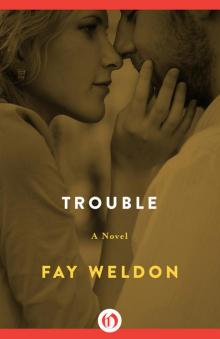 Trouble
Trouble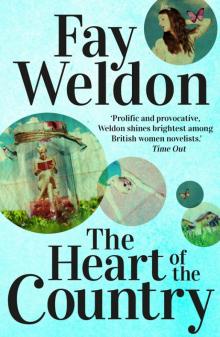 The Heart of the Country
The Heart of the Country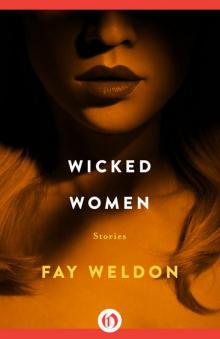 Wicked Women
Wicked Women Mischief
Mischief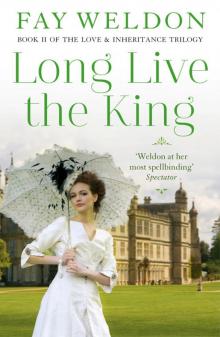 Long Live the King
Long Live the King Remember Me
Remember Me Worst Fears
Worst Fears Chalcot Crescent
Chalcot Crescent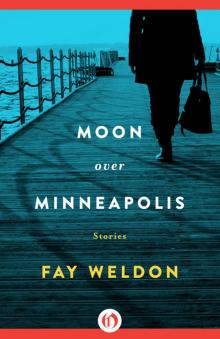 Moon Over Minneapolis
Moon Over Minneapolis The New Countess
The New Countess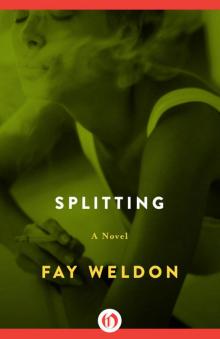 Splitting
Splitting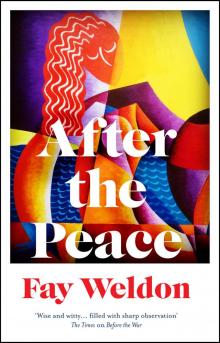 After the Peace
After the Peace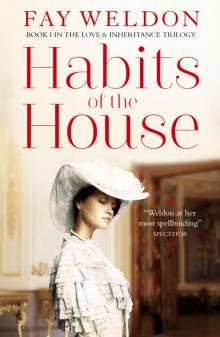 Habits of the House
Habits of the House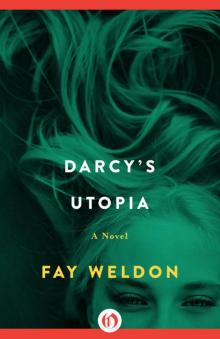 Darcy's Utopia
Darcy's Utopia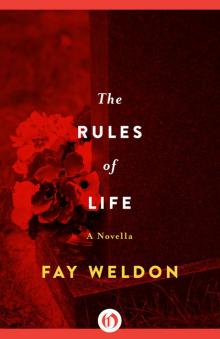 The Rules of Life
The Rules of Life Kehua!
Kehua! Before the War
Before the War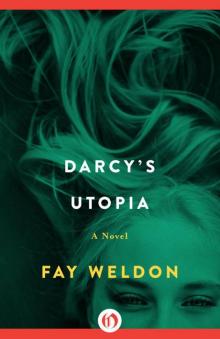 Darcy's Utopia: A Novel
Darcy's Utopia: A Novel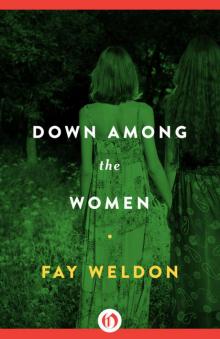 Down Among the Women
Down Among the Women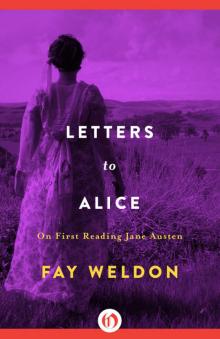 Letters to Alice
Letters to Alice 3 Great Historical Novels
3 Great Historical Novels Female Friends
Female Friends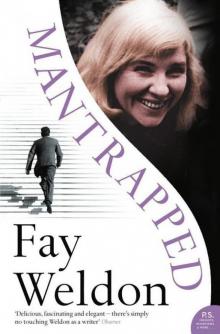 Mantrapped
Mantrapped The Bulgari Connection
The Bulgari Connection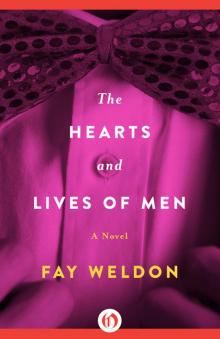 The Hearts and Lives of Men
The Hearts and Lives of Men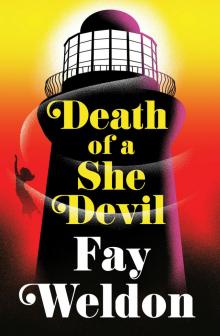 Death of a She Devil
Death of a She Devil